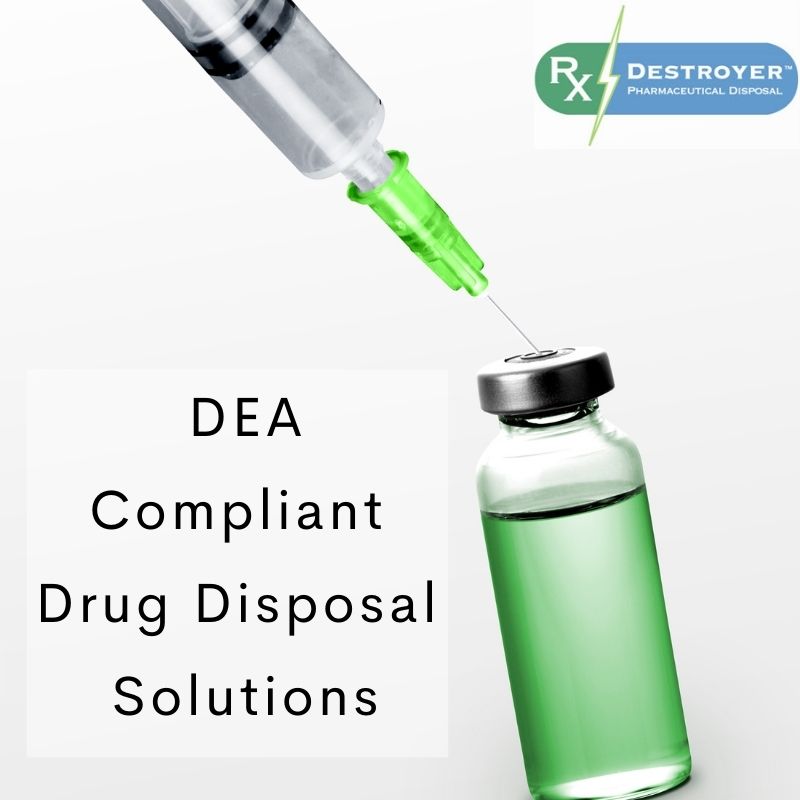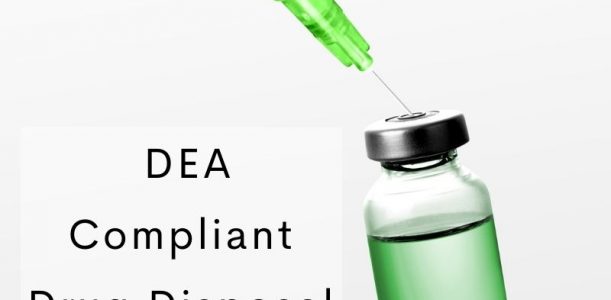
Greater Awareness and Systemwide Responses Are Needed to Combat Drug Diversion
Safe and secure handling, storage, and disposal of controlled drugs in hospitals that meet DEA regulations is needed to safeguard against drug diversion. System based strategies including meticulous record-keeping, witness logs, safe and easy DEA compliant disposal methods are needed to broaden the response to drug diversion from hospitals. Strictly followed controlled substance disposal policies must be enforced with accountability.
Serious Risks of Drug Diversion
Drug diversion of controlled substances from hospitals affects the health care facility, the public, healthcare workers, and the patients. When healthcare workers divert controlled substances, patients suffer inadequate pain relief and receive substandard care from impaired healthcare workers. Patients are at an increased risk of infection from compromised syringes. When healthcare workers divert controlled substances they face criminal prosecution, civil malpractice suits and are at a greater risk of overdose and death.
Hospitals bear a large cost when drugs are diverted with internal investigations, DEA inspections and audits, follow-up care for patients affected and fines that can reach millions of dollars for operating with inadequate safeguards. Hospitals that fail to self-regulate proper pharmaceutical waste controls and disposal and fail to report drug diversion compromise the trust of the public. Drug diversion impacts the health of the entire population by contributing to drug misuse and abuse.
According to a study by the Journal of Hospital Medicine, Diversion of Controlled Drugs and Hospitals: a Scoping Review of Contributors and Safeguards, published examples of drug diversion in hospitals include healthcare workers substituting saline for medication, outright theft of controlled substances and falsification of clinical documents. One single endoscopic clinic in the United States reported that $10,000 worth of propofol was unaccounted for over a four-week period. While discrepancies in transactions do not necessarily mean drug diversion, it is a red flag highlighting an area that needs improvement and a potential signal of drug diversion occurring.
Drug Diversion Prevention Program for Hospitals
Hospitals must implement and follow a strict drug diversion prevention program with safeguards in place to prevent the misuse of controlled substances. Maintaining a proper chain of custody for all controlled substances from “cradle-to-grave” is critical in healthcare facilities. Many facilities use an electronic inventory system with witness logs which track the control, custody, transfer, and disposal of controlled substances. Clear documentation should always show where prescriptions are in the chain of custody.
A method of quick and easy drug disposal which accompanies the proper witness logs and documentation helps to make drug diversion in hospitals less likely.
DEA Compliant Drug Disposal Solutions
Rx Destroyer™ drug disposal products help to prevent drug diversion in hospitals as an important part of a controlled substance disposal policy. The patented* charcoal solution begins neutralizing medications on contact to render them irretrievable, meeting DEA regulations for non-retrievable controlled substance disposal. With a wide selection of product sizes, Rx Destroyer™ can be used in any healthcare setting, hospitals, emergency services, long-term care facilities and more.
C2R Global Manufacturing offers turnkey pharmaceutical waste disposal solutions with easy to use Rx Destroyer™ products, DEA compliance consultation, experienced industry best practices, exceptional customer service and more. Our products never require water, batteries, or contracts. Contact us to help save lives, save the environment, and prevent drug diversion in hospitals.

